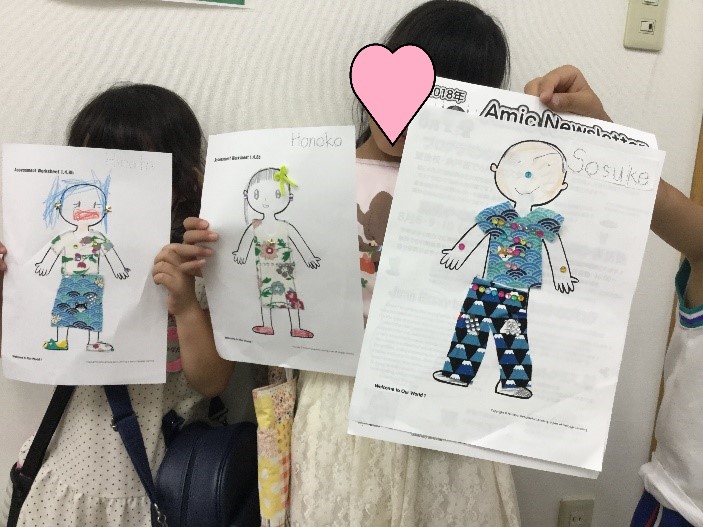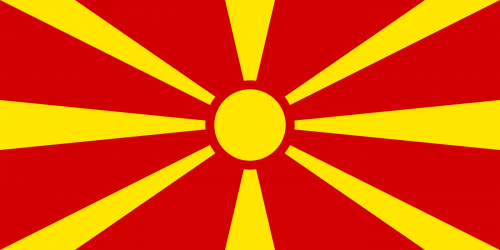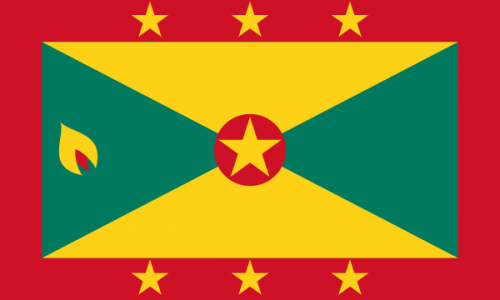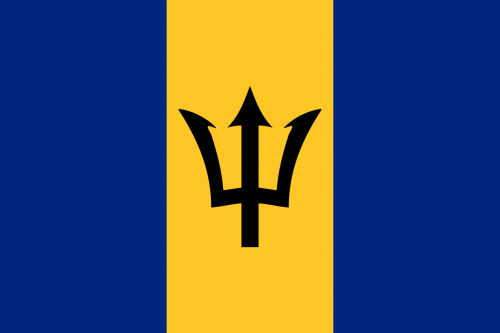ブログ
英会話・英語 アミック - Five uses of ‘get’
Five uses of ‘get’
Buy / obtain
Get can mean buy or obtain.
- I got myself a new phone last weekend.
- I need to get some new clothes.
Receive
Get can mean receive.
- I just got a message.
- I got a bike for my birthday!
Become
Get with an adjective can mean become.
- I’m getting annoyed.
- It’s got quite hot in here suddenly.
Understand
Get can mean understand.
- I don’t get this joke.
- I don’t often meet people who get this type of movie.
Arrive
Get can mean arrive.
- I need to get home early so I’m off!
- What time will you get here?
Umm-ing and like-ing your way to fluency – 英会話・英語 アミック
Recently at Amic, we did evaluations of our students’ progress with English. One of the criteria in which me measured our adult students on was their ability to ‘use hesitation mechanisms’ when speaking. In English, classic examples of these would be ‘um’, ‘uh’, ‘like’, ‘I mean’, ‘well’, and similar noises we make to show the other person we aren’t finished speaking and are thinking about what to say next.
Although it’s not something I’ve ever seen explicitly taught in an English textbook, I think using these filler sounds is an important step for any language learner wanting to sound like a native speaker. I may even start correcting my high-level students who fill their hesitation with etos and anos and see if it’s something that can be truly taught, or if they are something that just get ‘absorbed’ after listening to and interacting with enough native English speakers and media.
All of this also made me curious as to what filler sounds are used in other languages, and Wikipedia did not disappoint with me with their thorough list. Here are some interesting ones I came across:
- Chinese: en (um), zhège (“this”)
- Dutch: ehm (um), dus (“thus”), eigenlijk (“actually”)
- French: euh (um), bah, ben (“well”), tu sais, t’sais (“you know”)
- Persian: eh (um), bebin (“you see”), yaʿni (“I mean”)
- Polish: eee (um), no (“well”), wiesz (“you know”)
- Swedish: öhm (um), asså/alltså (“therefore”, “thus”), liksom (similar to “like”)
- Turkish: yani (“meaning…”), işte (“that is”), and falan (“so on”)
the greatest and best #1 stream of consciousness English conversation blog post ever **READ NOW** 「英会話・英語 アミック」
Well, dear reader, as of now I have nothing to say. Really. Nothing.
(silence)
**************
If I felt like this in an actual face-to-face social situation, I would perhaps feel obligated to make nervous small talk in the hope that it eased the tension of the silent room. But online, surrounded by Earth’s HIVE of BUZZING information peddlers and broke content creators (the information and “content” probably falling somewhere between dire and excruciatingly meaningless), I’ve found silence is golden. Shiny-soul-warming-morning-sunshine-on-your-face-after-a-good-sleep golden.
But do not fret, dear reader. I’ll have something to say next week. Something so unbearably important to tell everyone that I’ll practically race my own shadow to my laptop followed only by the hammering of my icy, air-conditioned fingers descending on the keyboard like a hailstorm in an attempt to convey everything as accurately as possible before it slips my mind forever.
Okay, no.
Not really.
Joe
英会話・英語 アミック 英語の俳句
こんにちは、アミック石井校の辰馬です。
気づかれた方もいるかもしれませんが、石井校の掲示板には、季節ごとにRoni先生が選んだ英語の俳句を貼りだしています。
俳句は、英語でも人気のある詩の形式で、文章を3行に分けて書いたり、季節の言葉を入れるというようなルールがあります。
今回Roni先生が選んだのは、
Summer night…
even the stars
are whispering to each other
という、小林一茶の句を英語に訳したものです。
元の俳句はどんな日本語だったのか、よかったら考えてみてくださいね!
(元の句は、「星さまの ささやき給ふ けしきかな」です♪)
Summer is still here
I can’t feel my favorite season coming to its end, but it is almost September. The wee hours are a little cooler that I sleep with my windows open. As I rode my son to nursery school today, the cicadas weren’t chirping as loud. Maybe they know that their time has come and that the typhoons are approaching us.
V-mail: not quite the predecessor of e-mail 英会話・英語 アミック
I’ve noticed a common trope when it comes to movies set during World War II: a soldier sends a letter to their family or sweetheart only for censorship to render it unreadable! Of course, censorship was an important tactic to use in an era of espionage and misdirections. Perhaps soldiers just had to learn how to censor their letters over time or they got yelled at enough times from their superiors to know better than to include locations and positions in their notes home. How were soldiers able to communicate with their loved ones? I, for one, would be devastated if my child or husband were in war and the only communication I received from them was full of holes! Enter V-mail!
Short for Victory Mail; V-mail was a hybrid mail process that was used during World War II for soldiers stationed abroad to send secure correspondence. How did it work? V-mail correspondence was written on small letter sheets, or paper that could be folded and sent without an envelope. The V-mail would than be censored and then photographed and transferred as a tiny image to microfilm. Once the V-mail arrived to its destination, the image would be printed at 60% of the documents original size.
According to the National Postal Museum, “V-mail ensured that thousands of tons of shipping space could be reserved for war materials. The 37 mail bags required to carry 150,000 one-page letters could be replaced by a single mail sack. The weight of that same amount of mail was reduced dramatically from 2,575 pounds (1168 kg) to a mere 45 (20.4 kg).This saved considerable weight and bulk in a time in which both were hard to manage in a combat zone.” [1] Wow!
In addition to postal censorship, V-mail also worked to stop espionage communications by “foiling the use of invisible ink, microdots, and microprinting, none of which would be reproduced in a photocopy.”[1] Who knew mail could be so fascinating?!
英会話・英語 アミック Clothes-
みなさん、こんにちは♪
アミックBlogを訪れてくださりありがとうございます(*^-^*)
スクールでは、暑さに負けず元気いっぱいなキッズの楽しそうな声が響いています。
こちらは【Clothes:衣服】をテーマにしたレッスン。

さて、衣服に関する動詞「着る・身に着ける」ですが、英語でもいろいろな表現があります。
まずは「Put on 」
put onは身につけた時点の動作「着る」を表します。
I put on a jacket this morning.
(私は今朝、ジャケットを着た)
次に「Wear」
こちらは「身につけている、着ている」という状態を表します。
I am wearing a jacket now.
(私は今、ジャケットを着ています)
そして「Dress」
動詞のdressはそのまま使うと「(誰かに)服を着せる」という意味で使われるので、誰に服を着せたかを指定する必要があります。
I dressed my son for kindergarten.
(私は息子に幼稚園に行くための服を着せた)
自分自身に対してdressを使う場合は、「誰」の部分に「oneself」を入れるとよいですね。
I dressed myself in a skirt.
(私はスカートをはいた)
ぜひ使い分けてみてくださいね!
英会話・英語 アミック – Play, do and go for sports
Play, do and go for sports
Play
We use play for team sports or ball games.
- I play football.
- I don’t play tennis.
- Will we play hockey tomorrow?
Do
We use do for more individual activities.
- I do exercise.
- I don’t do judo.
- Have you ever done aerobics?
Go
We often use go for activities ending in -ING
- I go running.
- I don’t go swimming.
- I would never go skydiving.
Flag Power Rankings – 英会話・英語 アミック
In addition to maps, as a kid I was also a huge flag nerd. While I liked to look at atlases for the actual maps inside, my true favorite page was at the back of book where every single country’s flag was displayed neatly. I’m only halfway embarrassed to say that I once had a shirt of a similar design, that I used to collect miniature flags, and that a few years ago I even downloaded an app to help me try and memorize every single nation’s flag (I didn’t quite ever make it to 100%). At one point I probably even wanted to be a vexillologist (a person who studies flags) but I’m guessing there aren’t too many job opportunities in that field.
Anyway, after spending all this time looking at flags, I naturally developed some favorites. While it’d be impossible for me to choose a true top list, these five would definitely be in the mix:
Seychelles

While most African nations use some combination of red-green-yellow-black on their flags, Seychelles lets everyone know how different they are from mainland Africa by sporting this fabulously different banner.
Macedonia

Macedonia’s flag looks like a permanent lens flare, or like you just unlocked some ancient gate or treasure chest that is opening for the first time in centuries.
Lebanon

I appreciate any flag that is probably extra fun for schoolchildren to draw (or that looks like it was designed in MS Paint).
Grenada

What looks like some sort of retro-futuristic basketball court design is actually the beautifully balanced flag of Grenada. To let everyone know how into spices they are, they even stuck in a clove of nutmeg on the left hand side.
Barbados

It’s a trident, just like Poseidon and Ariel’s father in “The Little Mermaid” have! Save for Kenya, I think it’s also the only flag with a weapon on it, so that’s pretty cool.
Anime & Manga
As a person that has been interested in Japanese culture since a young age, I of course have run across my fair share of manga and anime, superficially at least. But suddenly a couple months ago I started to watch anime and read manga and become much more interested in both. I’ve found a bunch of good stuff including classics like Death Note and some lesser known ones like Shiki. I really have become an otaku I guess. 😛
-Joe












